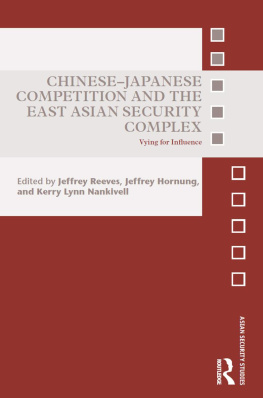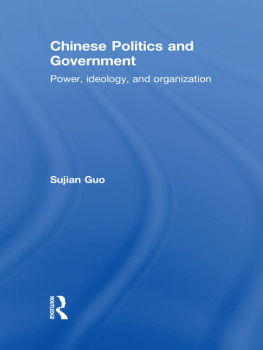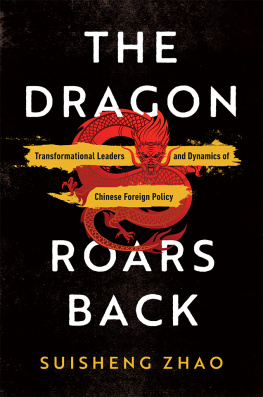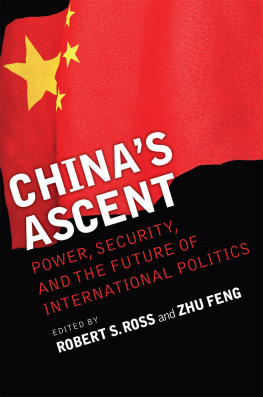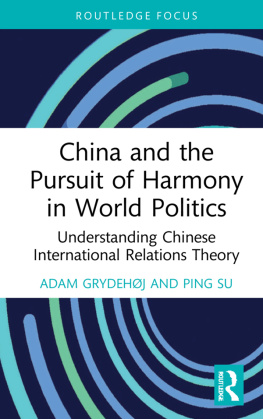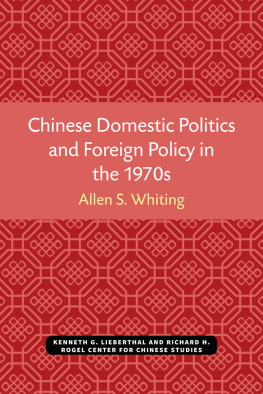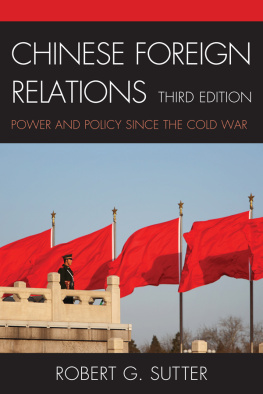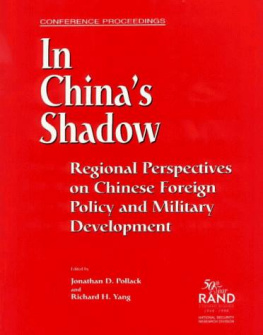Robert Ross - Chinese Security Policy: Structure, Power and Politics
Here you can read online Robert Ross - Chinese Security Policy: Structure, Power and Politics full text of the book (entire story) in english for free. Download pdf and epub, get meaning, cover and reviews about this ebook. year: 2009, publisher: Routledge, genre: Politics. Description of the work, (preface) as well as reviews are available. Best literature library LitArk.com created for fans of good reading and offers a wide selection of genres:
Romance novel
Science fiction
Adventure
Detective
Science
History
Home and family
Prose
Art
Politics
Computer
Non-fiction
Religion
Business
Children
Humor
Choose a favorite category and find really read worthwhile books. Enjoy immersion in the world of imagination, feel the emotions of the characters or learn something new for yourself, make an fascinating discovery.
- Book:Chinese Security Policy: Structure, Power and Politics
- Author:
- Publisher:Routledge
- Genre:
- Year:2009
- Rating:3 / 5
- Favourites:Add to favourites
- Your mark:
Chinese Security Policy: Structure, Power and Politics: summary, description and annotation
We offer to read an annotation, description, summary or preface (depends on what the author of the book "Chinese Security Policy: Structure, Power and Politics" wrote himself). If you haven't found the necessary information about the book — write in the comments, we will try to find it.
This volume provides a coherent and comprehensive understanding of Chinese security policy, comprising essays written by one of Americas leading scholars.
Chinese Security Policy covers such fundamental areas as the role of international structure in state behavior, the use of force in international politics (including deterrence, coercive diplomacy, and war), and the sources of great-power conflict and cooperation and balance of power politics, with a recent focus on international power transitions. The research integrates the realist literature with key issues in Chinese foreign policy, thereby placing Chinas behaviour in the larger context of the international political system. Within this framework, Chinese Security Policy considers the importance of domestic politics and leadership in Chinese policy making.
This book examines how Chinese strategic vulnerability since U.S.-China rapprochement in the early 1970s has compelled Beijing to seek cooperation with the United States and to avoid U.S.-China conflict over Taiwan. It also addresses the implications of the rise of China for the security of both United States and of Chinese neighbors in East Asia, and considers the implications of Chinas rise for the regional balance of power and the emerging twenty-first century East Asian security order.
This book will be of great interest to all students of Chinese Security and Foreign Policy, Chinese and Asian Politics, US foreign policy and International Security in general.
Robert Ross: author's other books
Who wrote Chinese Security Policy: Structure, Power and Politics? Find out the surname, the name of the author of the book and a list of all author's works by series.




